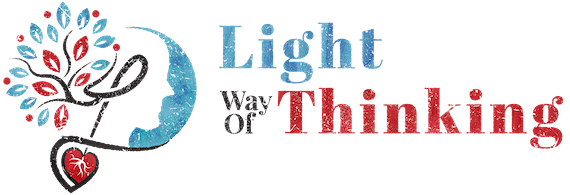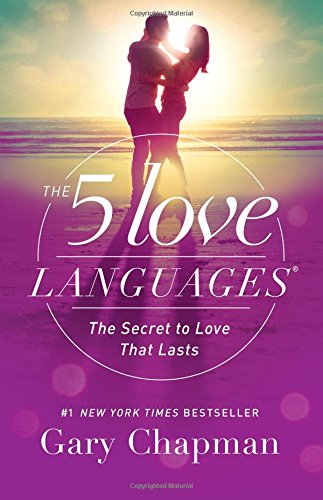We are all wired for intimacy and connection and a lack of these things can make us depressed, unproductive, and weak. And no, just because you are in a romantic relationship doesn’t mean you necessarily feel that you have intimacy and connection.
Why is it that some relationships seem abusive and like the couples always fight? They seem to always tear each other down and scream at one another. There’s so much tension. Whereas others seem like healthy relationships, as if the two complete each other–They create a dynamic, unstoppable duo. He’s out bodybuilding and trying to run for office, she’s creating an online start up while managing a yoga studio.
I think we all miss a large opportunity to strategize with our partners about how to build us up to become the most powerful people we can be. We can do this with friends of course too, and that’s important, but our intimate relationships can be some of the most important that literally shape our lives.
You’re going to learn about how everyone receives intimacy and love differently: it’s not one thing universally that is done. And, some tools (the love lanugages) that you can use between you and your partner to help each other become strong while feeling loved and supported.
Why Do Our Romantic Relationships Affect Us So Much? Why Are They So Important?
Sheryl Sandberg, COO of Facebook said:
The most important career choice you’ll make is who you marry.
I would argue that it’s not only who you marry, but anyone you date for extended periods of time. Your partners can literally build you up or tear you down.
While of course, an individual’s self-esteem determines how much they are affected by other people’s comments and criticism and how reliant they are on others, humans are biologically programmed to pair bond. We can meet many needs ourselves (in fact when it comes to relationships, sex is not necessary to get your emotional needs met). But still, intimacy is something we can’t really have except with another person. And as much as being open, honest, and loving with friends is great, it’s not as powerful as when done with a partner.
As we grow up, we are unconsciously looking for partners to fulfill our unmet emotional needs from when we were kids. Mom and Dad did their best, but they can’t do everything. We’re looking for partners who either have the same patterns of intimacy that were exhibited by our parents (specifically the parent of the opposite sex), or if we work on ourselves (and become aware of any negative intimacy behaviours that our parents had), partners that can help us with the unmet needs.
Meeting these emotional needs can help make you into a stable, productive, and functional human being. Without meeting them, you can turn violent, depressed, isolated, and suicidal.
While finding the right person is essential and I could write a separate book on it, having a guiding path of HOW the person can HELP YOU meet your emotional needs would be great. I mean, they might be really good inside and want to give you everything, but perhaps they don’t know exactly how to do it.
Introducing The Five Love Languages – Tools For Intimacy
The Five Love Lanugages (5LLs) is a book by Gary Chapman. In summary, Gary argues that depending on what you went
through as a kid or how you were raised, certain emotional needs weren’t met that leave you wanting them. Based on these deficits, there are things that people can do which can help fill these unmet needs.
The actions/love languages are:
Physical touch
Words of praise (giving compliments)
Spending quality time (no distractions, one-on-one time doing what the person wants to do)
Giving gifts
Acts of service (cleaning something for them, doing errands, helping them)
The unmet needs will hit you the hardest. What this means is that you’ll feel loved and appreciated when someone does any of these things, but chances are 1-2 really mean more to you than others. For example gifts are awesome, but I’m FAR more grateful for and affected by compliments due to my past with bullying, physical touch, and to a lesser extent quality time (I scored highest with words of praise, and physical touch and quality time were nearly tied).
You can take a test here which will ask you some questions so you can find out what your LLs are.
Talking With Your Partner About Using Your Love Languages
Once you know your’s and your partner’s LLs, you can actually strategize how to make each other feel better and happier as people.
Another interesting part of finding out the LLs is that previously, you may have been trying to show affection in a certain way which was not your partner’s primary way of receiving love. In this case, they’d feel neglected. Just because you like compliments and think gifts are silly doesn’t mean that your partner feels the same way.
The point is that you have a talk where you find out what each other’s LLs are so that periodically, you can engage in them to make the other person feel good. Don’t fucking time it like, “Oh it’s 1 O’clock dear, here’s your daily compliment”, but sprinkle these actions here and there so that everyone feels loved, supported, and secure. This is also how you keep love going in a relationship after the initial “honeymoon” period when all the crazy hormones die off.
Feeling loved in intimate relationships will make each person stronger and better able to handle the shit that gets thrown at them in life. Plus you’ll probably like each other more, be more grateful for one another, have better sex… you get the drift.
Caveat: This works in marriages or with boyfriends/girlfriends. You can’t really expect a friends-with-benefits situation to really be open to this type of discussion.
While there are many other nuances that can help you foster healthy, happy relationships (such as not blaming each other for emotions, no manipulation, and direct and authentic communication), I believe this is a simple tool that takes a few minutes to work out which not many people are aware of, but can make DRASTIC differences to how you feel in your relationships.
Try it out!
Further reading:
6 Toxic Relationship Habits Most People Think Are Normal by Mark Manson
6 Healthy Relationship Habits Most People Think Are Toxic by Mark Manson
Sex and Our Psychological Needs by Mark Manson


